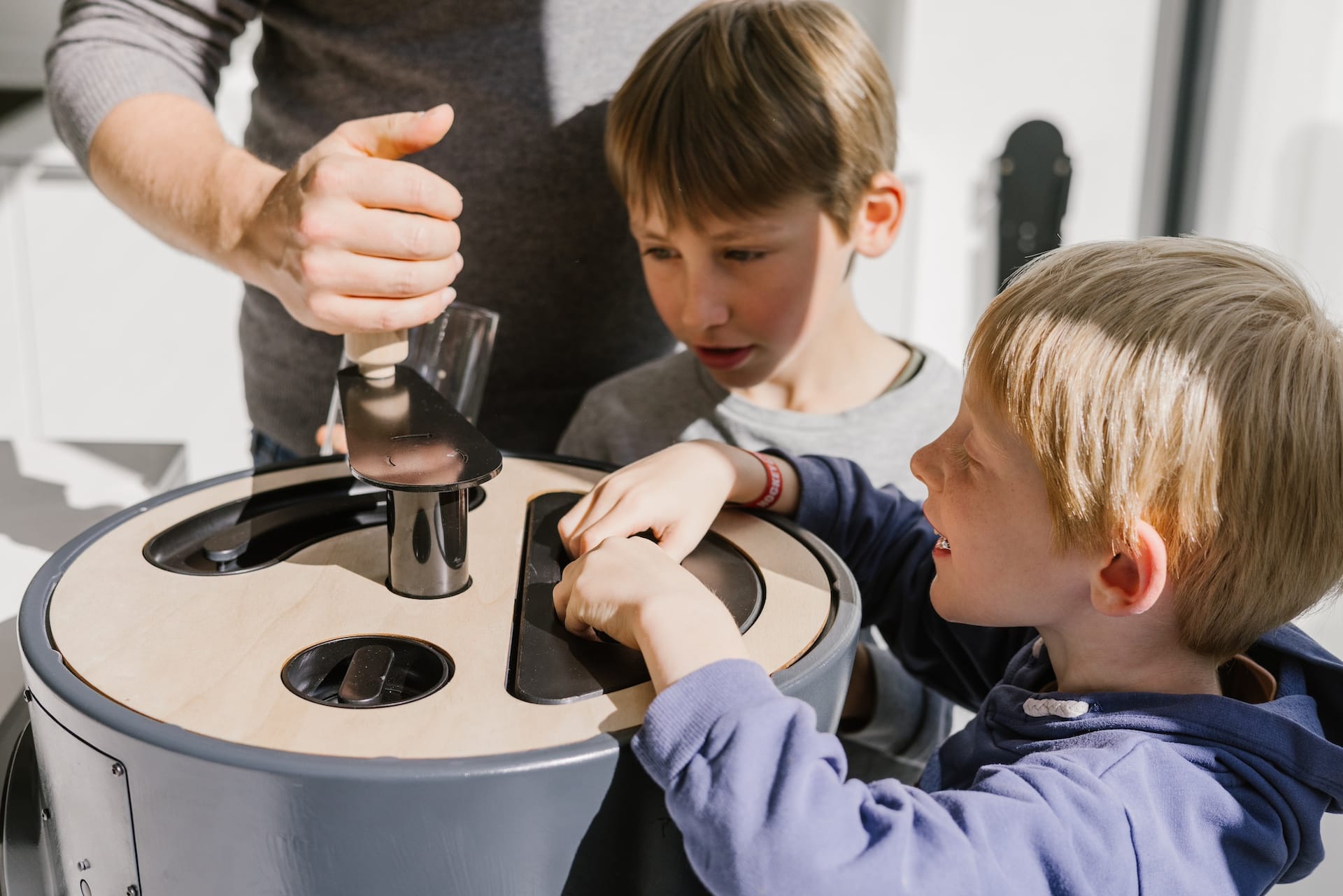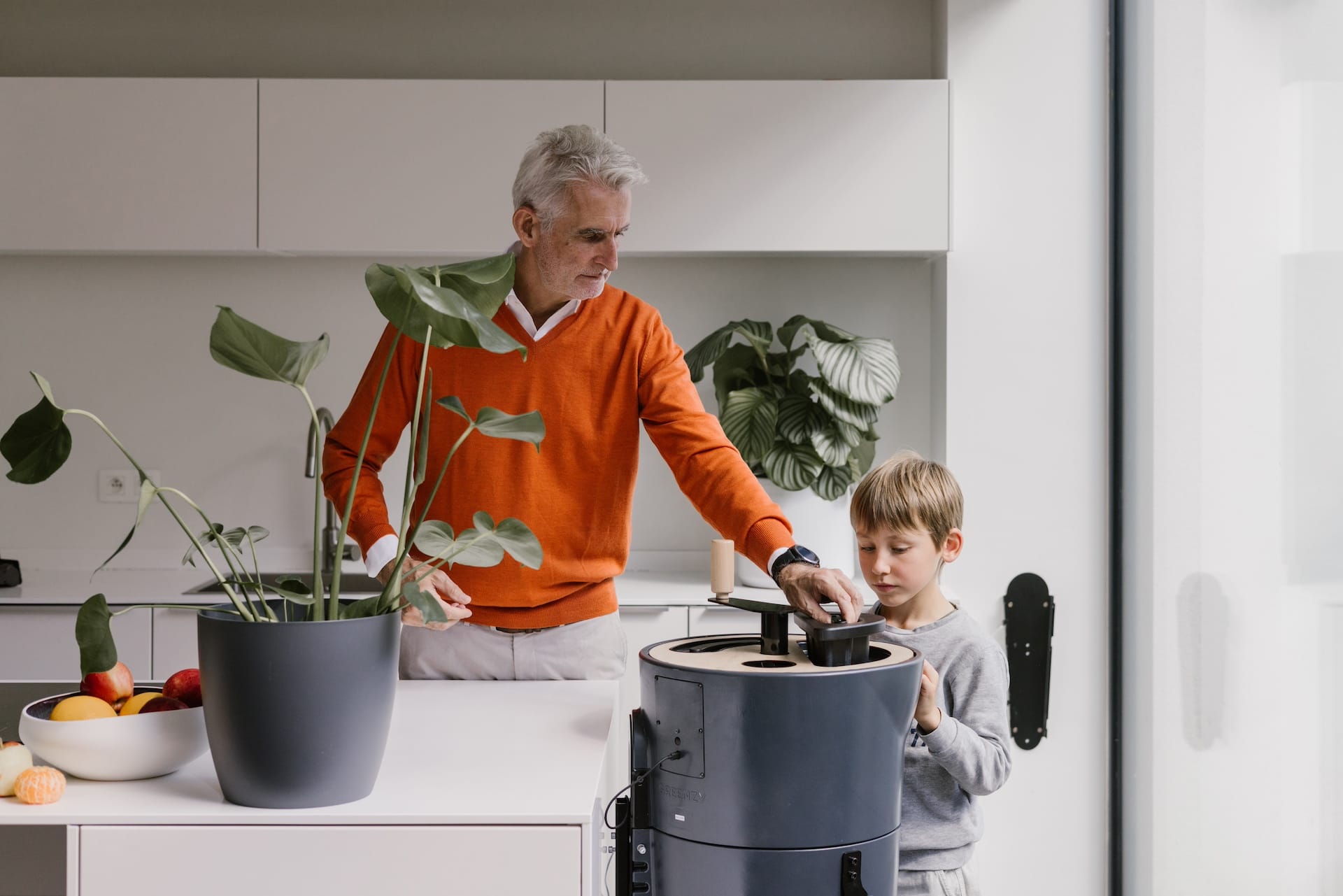Understanding the Different Composting Methods
Composting is an essential practice for reducing organic waste and enriching the soil. With the rise of environmental concerns, several composting methods have been developed, each tailored to specific needs. This article explores the main alternatives to composting, comparing their pros and cons, while highlighting the unique benefits of Greenzy.
1. Bin composting: tradition and simplicity
Bin composting is one of the most traditional and widely used methods. It involves storing organic waste in a specific container, often made of wood, plastic or metal. This method is popular among home gardeners for its simplicity and effectiveness.
Bin composting has many advantages. It is easy to use since it does not require sophisticated equipment; you just need to add organic waste and turn the contents regularly to aerate the compost. This method is also affordable, since it does not require a large investment; a bin can be made from recycled materials or purchased at a moderate cost. In addition, it allows for better control of the decomposition process, adjusting humidity, aeration and mixing of materials to obtain quality compost.
However, bin composting also has its drawbacks. If not managed properly, it can attract pests like rodents and produce unpleasant odors. Additionally, it requires outdoor space, which can be a problem for those living in apartments or urban areas, and the decomposition process can be relatively slow, requiring several months to produce usable compost.
In comparison, Greenzy overcomes many challenges of in-bin composting with its advanced technology. Its built-in ventilation system eliminates odors and speeds up the decomposition process. Compact and suitable for small spaces, it is ideal for urban use.
2. Vermicomposting
Vermicomposting is a composting method that uses earthworms to break down organic waste, and it is particularly suitable for small spaces or indoor composting.
This technique has several notable advantages. First, it is compact and quiet, allowing composting to be carried out in small spaces such as under a sink or in a closet, making it ideal for apartments. In addition, it produces high-quality, nutrient-rich compost, which is perfect for enriching potted plants and urban gardens. The ecological aspect of vermicomposting is also a major advantage, as it efficiently recycles organic waste without requiring additional energy or resources, thus reducing the carbon footprint.
However, there are also drawbacks to this method. Worm management requires regular attention to ensure they are well fed and their environment is stable, which can require some maintenance. Additionally, an unbalanced system can produce unpleasant odors or become too humid, which can be uncomfortable in an indoor environment. Finally, vermicomposting is limited in terms of quantity, being best suited to small amounts of organic waste, which may not be sufficient for households that generate a lot of waste.
In comparison, Greenzy offers a more versatile solution, capable of handling a larger volume of waste while avoiding the maintenance issues associated with worms, while being just as environmentally friendly.
3. Composting in Heaps
Heap composting is a composting method commonly used in rural environments or for large gardens. This technique relies on stacking organic waste in a pile, allowing nature to manage the decomposition process.
Among its advantages, we note the absence of the need for infrastructure: it is enough to choose a suitable location and start piling the waste without the need for a bin or other structure. In addition, this method offers a large capacity, being able to handle large quantities of waste, which is particularly advantageous for farms or large gardens. Composting in piles is also easy to maintain, requiring only periodic turning of the pile to promote aeration.
However, there are also drawbacks to this method. It can attract pests and produce unpleasant odors if not managed properly, just like bin composting. Additionally, the decomposition process can take a long time, often a year or more, before it produces usable compost. Finally, pile composting requires a lot of space, making it unsuitable for urban areas or small gardens.
In comparison, Greenzy stands out as a more suitable solution for urban environments due to its compact design and odorless operation, offering a practical alternative for home composting where space is limited.
4. Bokashi Composting
Bokashi composting is a Japanese method of fermenting organic waste that uses specific microorganisms.
It is particularly fast and efficient, making it an excellent option for small spaces. This technique stands out for its speed: Bokashi composting can usually be completed in a few weeks, much faster than other composting methods. In addition, thanks to the fermentation process, this method produces virtually no unpleasant odors, and it is suitable for small spaces, being able to be carried out in a simple bucket, making it ideal for apartments or small homes.
However, it does have some drawbacks. Bokashi composting requires the regular addition of Bokashi mix, which consists of wheat bran and microorganisms, which can lead to additional costs and effort. Additionally, the final product, called pre-compost, must be buried in the soil for the decomposition process to be complete, which may not be suitable for all users. This method also produces a liquid that must be drained regularly, which can be a hassle for some.
Compared to Greenzy, which offers a more automated and hassle-free process, Bokashi composting requires more manual intervention, including regular purchase of mix and liquid management, while Greenzy offers a more convenient solution without the need for additional waste management.
Conclusion
In conclusion, Greenzy stands out as a modern and complete solution for composting, combining efficiency and practicality in a single device. Unlike traditional methods such as bin composting, worm composting, and heap composting, Greenzy offers an innovative answer to the challenges of home composting. Its compact design and automated system allow for the processing of a large volume of organic waste while minimizing odors and nuisances. By simplifying the process and reducing maintenance requirements, Greenzy is particularly suitable for urban environments where space is limited. Thus, for those looking for a modern, efficient and easy-to-integrate composting method, Greenzy represents an ideal option, meeting the demands of contemporary composting with elegance and efficiency.




